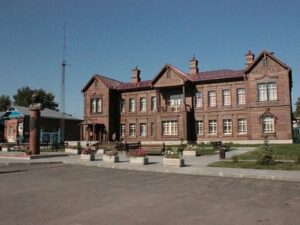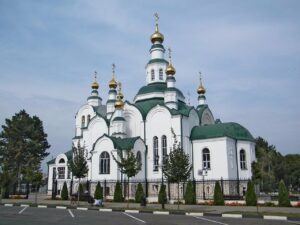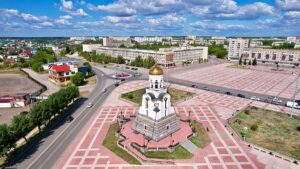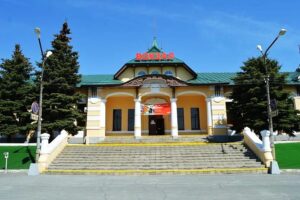Duisburg: A Comprehensive Exploration of Germany’s Industrial Powerhouse

Introduction
Duisburg, located in the western part of North Rhine-Westphalia, Germany, is a city deeply intertwined with industrial prowess, cultural diversity, and natural beauty. As one of the major centers of the Ruhr region, Duisburg has a storied history shaped by its strategic location at the confluence of the Rhine and Ruhr rivers. This article delves into the multifaceted nature of Duisburg, exploring its historical evolution, architectural landmarks, cultural scene, natural attractions, economic landscape, and community life.
Historical Background
Early History: The history of Duisburg dates back to Roman times when it served as a significant settlement due to its advantageous position near major waterways. Archaeological finds suggest that Duisburg was an important trading center even before the Middle Ages.
Medieval Period: During the medieval period, Duisburg emerged as a prominent member of the Hanseatic League, a powerful economic and defensive alliance of merchant guilds and market towns in Northwestern and Central Europe. The city thrived on trade, particularly in goods like wool, wine, and grain.
Industrial Revolution: The advent of the Industrial Revolution in the 19th century marked a transformative period for Duisburg. The discovery of extensive coal deposits in the Ruhr area and the development of steel production led to rapid industrial growth. Duisburg became a key center for iron and steel manufacturing, shipbuilding, and chemical production. The construction of the Duisburg Inner Harbor (Innenhafen) facilitated the transportation of raw materials and finished goods, further boosting the city’s industrial might.
World War II: Duisburg, due to its industrial significance, was heavily targeted during World War II, resulting in extensive damage. The city’s factories, docks, and residential areas were bombed repeatedly, leading to significant destruction and loss of life. Despite the devastation, Duisburg’s post-war reconstruction was swift and comprehensive, transforming it into a modern industrial and commercial hub.
Post-War Development: The latter half of the 20th century saw Duisburg transitioning from heavy industry to a more diversified economy. The decline of coal mining and steel production was met with efforts to revitalize the city through investments in technology, education, and culture. The redevelopment of the Inner Harbor into a modern urban district exemplifies Duisburg’s ability to adapt and reinvent itself.
Architectural Highlights
Duisburg Inner Harbor (Innenhafen): The Duisburg Inner Harbor is a prime example of urban redevelopment and adaptive reuse of industrial heritage. Once the largest inland port in the world, the Inner Harbor has been transformed into a vibrant district featuring office buildings, residential areas, cultural institutions, and leisure facilities. The combination of restored historical warehouses and modern architecture creates a unique urban landscape. The inner harbor is also home to several restaurants, cafes, and museums, making it a popular destination for both locals and tourists.
Landschaftspark Duisburg-Nord: Landschaftspark Duisburg-Nord is a stunning example of industrial heritage transformed into a recreational space. The former Thyssen steelworks site has been repurposed into a public park that combines elements of nature, industry, and art. Visitors can explore the park’s expansive grounds, climb the old blast furnaces for panoramic views, and enjoy activities like diving in the gasometer, rock climbing, and light installations. The park’s innovative design and creative reuse have earned it international acclaim.
Mercatorhalle Duisburg: Named after the famous cartographer Gerardus Mercator, who lived in Duisburg, Mercatorhalle is a modern concert and conference hall located in the heart of the city. The venue hosts a variety of events, including classical concerts, theatrical performances, and conferences. Its state-of-the-art facilities and striking architectural design make it a key cultural landmark.
Salvatorkirche (Salvator Church): Salvatorkirche is one of Duisburg’s oldest and most significant churches, with origins dating back to the 9th century. The current Gothic structure, built in the 14th century, features impressive stained glass windows, intricate woodwork, and a notable organ. The church’s history and architectural beauty make it a spiritual and cultural focal point of the city.
CityPalais Duisburg: CityPalais Duisburg is a modern complex that includes a shopping mall, restaurants, a casino, and the Mercatorhalle. Its contemporary design and central location make it a bustling hub of commercial and social activity. The complex also hosts various cultural and entertainment events, contributing to the city’s vibrant urban life.
Cultural and Artistic Scene
Lehmbruck Museum: The Lehmbruck Museum is dedicated to the works of the renowned sculptor Wilhelm Lehmbruck and other modern and contemporary artists. The museum’s collection includes sculptures, paintings, drawings, and prints, offering a comprehensive overview of 20th and 21st-century art. The museum’s architecture, designed by Manfred Lehmbruck, the artist’s son, provides a serene and contemplative setting for the artworks.
Theater Duisburg: Theater Duisburg is a major cultural institution that hosts a diverse range of performances, including opera, ballet, drama, and musicals. The theater is part of the Deutsche Oper am Rhein, a joint opera company with Düsseldorf. Its rich program attracts audiences from across the region and contributes significantly to the cultural life of Duisburg.
Küppersmühle Museum: The Küppersmühle Museum, located in a converted warehouse in the Inner Harbor, is one of Germany’s leading museums for contemporary art. The museum’s collection includes works by prominent German artists, particularly from the post-war period. The building’s industrial architecture, combined with its modern interior design, creates a unique space for experiencing art.
Filmforum Duisburg: Filmforum Duisburg is a cinema and cultural center that screens a wide range of films, from mainstream blockbusters to independent and international films. The venue also hosts film festivals, retrospectives, and special events, providing a platform for diverse cinematic experiences.
Ruhrtriennale: The Ruhrtriennale is an international arts festival that takes place every three years in various cities of the Ruhr region, including Duisburg. The festival features performances and exhibitions across multiple disciplines, including theater, dance, music, and visual arts. The use of industrial sites as venues adds a unique dimension to the festival’s program.
Natural Beauty and Outdoor Activities
Sechs-Seen-Platte (Six Lakes District): The Sechs-Seen-Platte is a picturesque area located in the southern part of Duisburg, featuring six interconnected lakes surrounded by lush forests and meadows. The area offers a variety of recreational activities, including swimming, boating, fishing, and hiking. The well-maintained trails and scenic beauty make it a popular destination for nature lovers and outdoor enthusiasts.
Tiger and Turtle – Magic Mountain: Tiger and Turtle – Magic Mountain is a unique sculpture and landmark that resembles a roller coaster but is actually a walkable structure. Located on Heinrich-Hildebrand-Höhe hill, the sculpture offers stunning views of the surrounding area and is illuminated at night, creating a magical atmosphere. It has become an iconic symbol of Duisburg and a must-visit attraction.
Duisburg Zoo: Duisburg Zoo is one of Germany’s oldest and most renowned zoos, known for its diverse collection of animals and innovative exhibits. The zoo’s highlights include the Dolphinarium, where visitors can watch dolphin shows, and the Koala House, which houses several koalas. The zoo’s commitment to conservation and education makes it a beloved institution in Duisburg.
Rhine Park (Rheinpark): Rhine Park is a large green space along the banks of the Rhine River, offering beautiful views and recreational opportunities. The park features walking and cycling paths, picnic areas, playgrounds, and sports facilities. Its location near the Inner Harbor makes it easily accessible and a favorite spot for relaxation and outdoor activities.
Botanical Garden Kaiserberg: The Botanical Garden Kaiserberg is a serene oasis located on the Kaiserberg hill. The garden features a wide variety of plants, including exotic species, medicinal herbs, and native flora. The well-manicured grounds, picturesque ponds, and themed gardens make it a peaceful retreat for visitors seeking tranquility and natural beauty.
Educational and Research Institutions
University of Duisburg-Essen: The University of Duisburg-Essen is one of Germany’s largest and most diverse universities, with campuses in Duisburg and Essen. The university offers a wide range of undergraduate and graduate programs across disciplines such as humanities, social sciences, natural sciences, engineering, and medicine. Its strong research focus and international collaborations contribute to its reputation as a leading academic institution.
Fraunhofer Institute for Microelectronic Circuits and Systems (IMS): The Fraunhofer IMS is part of the renowned Fraunhofer Society and specializes in research and development in the field of microelectronics. The institute’s work includes the design and fabrication of integrated circuits, sensor systems, and microsystems. Its cutting-edge research and industry partnerships drive innovation and technological advancements.
Max Planck Institute for Iron Research: The Max Planck Institute for Iron Research, located in nearby Düsseldorf, collaborates closely with institutions in Duisburg. The institute conducts fundamental research on the properties, processing, and performance of materials, particularly metals. Its work contributes to advancements in materials science and engineering.
Mercator School of Management: The Mercator School of Management, part of the University of Duisburg-Essen, offers programs in business administration, economics, and related fields. The school is named after Gerardus Mercator, reflecting Duisburg’s historical association with the famous cartographer. Its focus on practical education and industry connections prepares students for successful careers in business.
Festivals and Events
Duisburger Akzente: Duisburger Akzente is an annual cultural festival that celebrates the arts in all their forms. The festival features theater performances, concerts, exhibitions, and literary events, highlighting both local talent and international artists. The diverse program and unique venues, including industrial sites and cultural institutions, make it a vibrant and dynamic event.
Traumzeit Festival: The Traumzeit Festival is an eclectic music festival held in the industrial setting of the Landschaftspark Duisburg-Nord. The festival’s lineup includes a mix of genres, from indie and rock to electronic and world music. The atmospheric backdrop of the former steelworks, combined with innovative stage design and lighting, creates a memorable experience for attendees.
Ruhrort Festival: The Ruhrort Festival is a celebration of Duisburg’s historic harbor district, Ruhrort. The festival includes a variety of events, such as live music, theater performances, art exhibitions, and culinary experiences. The focus on local history and culture, along with the picturesque setting along the Rhine River, makes it a beloved event for residents and visitors alike.
Christmas Markets: Duisburg’s Christmas markets are a highlight of the holiday season, offering a festive atmosphere, artisanal crafts, and delicious seasonal treats. The main market in the city center features beautifully decorated stalls, an ice skating rink, and a variety of entertainment options. The combination of traditional charm and modern attractions makes Duisburg’s Christmas markets a popular destination.
Dragon Boat Festival: The Dragon Boat Festival, held annually on the Duisburg Inner Harbor, is a thrilling sporting event that attracts teams from across the region. The colorful boats, competitive races, and lively atmosphere make it a fun and exciting event for participants and spectators. The festival also includes cultural performances, food stalls, and family-friendly activities.
Economic and Industrial Landscape
Port of Duisburg (Duisport): The Port of Duisburg, also known as Duisport, is the world’s largest inland port and a key logistics hub in Europe. Its strategic location at the confluence of the Rhine and Ruhr rivers and its extensive infrastructure make it a critical center for international trade and transportation. Duisport handles a wide range of cargo, including containers, bulk goods, and project cargo, facilitating the efficient movement of goods across Europe and beyond.
Industrial Heritage: Duisburg’s industrial heritage is deeply embedded in its identity, with a history of steel production, coal mining, and manufacturing. While many traditional industries have declined, the legacy of industrialization is preserved and celebrated through museums, cultural institutions, and repurposed industrial sites. The city’s ability to adapt and innovate has ensured its continued economic relevance.
Modern Industry: Today, Duisburg’s economy is diverse and dynamic, with key sectors including logistics, manufacturing, technology, and services. Major companies such as Thyssenkrupp (steel production), Haniel (wholesale and logistics), and Duisburger Hafen AG (port operations) have a significant presence in the city. The combination of traditional industries and emerging sectors creates a robust economic landscape.
Innovation and Startups: Duisburg has a growing startup ecosystem, supported by local incubators, accelerators, and innovation hubs. The city’s universities and research institutions play a crucial role in fostering entrepreneurship and technological innovation. Startups in fields such as logistics technology, renewable energy, and digital solutions are finding success in Duisburg, contributing to its reputation as a center for innovation.
Trade and Commerce: Duisburg’s strategic location and excellent transportation infrastructure make it an important hub for trade and commerce. The city is well-connected by rail, road, and air, facilitating the movement of goods and services. The local Chamber of Commerce supports businesses and promotes economic development, helping to attract investment and create jobs.
Community and Quality of Life
Education and Schools: Duisburg offers a high standard of education, with a range of schools and educational institutions to choose from. The city’s schools provide quality education from primary to secondary levels, with both public and private options available. The presence of the University of Duisburg-Essen and other higher education institutions further enhances the city’s educational landscape.
Healthcare: Duisburg has a comprehensive healthcare system, with modern hospitals, clinics, and medical practices providing excellent care to residents. The University Hospital of Duisburg and other healthcare facilities offer a wide range of medical services, ensuring the well-being of the community.
Public Transportation: Duisburg’s public transportation network is efficient and well-developed, making it easy to navigate the city and surrounding areas. The Duisburg tram and bus network, as well as regional trains, connect key neighborhoods and attractions, providing convenient and reliable transit options. The central train station offers connections to other major cities in Germany and beyond.
Safety and Community: Duisburg is known for its safe and welcoming atmosphere. The city’s low crime rate and strong sense of community make it an attractive place to live and visit. Various community organizations and initiatives promote social cohesion and support residents in need.
Housing and Living Costs: Housing in Duisburg is relatively affordable compared to larger German cities. The city offers a range of housing options, from modern apartments to historic homes. The cost of living is reasonable, with expenses such as groceries, transportation, and entertainment being more affordable than in major metropolitan areas.
Notable Personalities
Gerardus Mercator: Gerardus Mercator, the famous cartographer known for creating the Mercator projection map, lived and worked in Duisburg during the 16th century. His innovative work in geography and cartography had a lasting impact on navigation and map-making.
Wilhelm Lehmbruck: Wilhelm Lehmbruck was a renowned sculptor born in Duisburg. His expressive and modernist sculptures are celebrated worldwide, and his legacy is preserved in the Lehmbruck Museum, which houses an extensive collection of his works.
Helge Schneider: Helge Schneider is a multi-talented artist from Duisburg, known for his work as a comedian, musician, and actor. His unique blend of humor and musical talent has made him a beloved figure in German entertainment.
Theo Albrecht: Theo Albrecht, co-founder of the global supermarket chain Aldi, was born in Essen but had significant business ties to Duisburg. His innovative approach to retail and cost management revolutionized the supermarket industry.
Duisburg’s Sports Culture: Duisburg is home to several prominent sports teams and facilities, fostering a strong culture of athleticism and community involvement. MSV Duisburg, the city’s football club, has a passionate fan base and plays an important role in local sports culture. The city’s sports facilities, including the Wedau Sports Park, host a variety of events and provide training grounds for athletes.
Conclusion
Duisburg is a city that embodies the spirit of resilience, innovation, and cultural richness. From its industrial heritage and modern economic landscape to its vibrant cultural scene and natural beauty, Duisburg offers a unique and dynamic environment for residents and visitors alike. The city’s commitment to sustainability, community well-being, and economic development ensures a high quality of life and a promising future. Whether exploring its historical landmarks, enjoying its green spaces, or immersing oneself in its cultural offerings, Duisburg stands as a testament to the enduring strength and creativity of its people. Discovering Duisburg is an enriching journey through the past, present, and future of one of Germany’s most fascinating cities.




